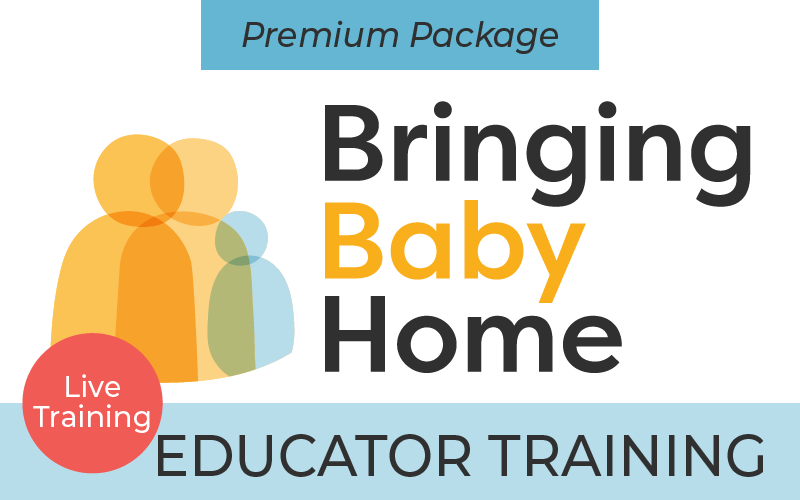Change takes time. Although it is common knowledge that changing diet or substance use is extremely difficult, therapists and educators have known for years that making changes to relationship habits also presents a significant challenge. Most couples find comfort in their everyday routines and use consistent patterns of communication with one another. In summary, most people like the familiar and want to maintain what they know.
Nothing disrupts the familiar patterns in a relationship more than becoming a parent. When a baby arrives, gender roles change, responsibilities and stress increase, and intimacy and communication decrease. While a new child brings joy, our research shows that the transition to parenthood also brings a 67% decrease in relationship satisfaction for both men and women.
In 1999, Drs. John and Julie Gottman were seeing pregnant couples and new parents who were reporting relationship challenges after welcoming their new baby. This presented an opportunity for intervention leading the Gottmans to design a psycho-educational intervention called Bringing Baby Home. This 2-day workshop focused on helping couples maintain intimacy, change conflict patterns, facilitate father involvement and promote positive parenting with the goal of optimizing their infant’s development. The workshop evolved into a longitudinal research study conducted by John Gottman and his colleague, Dr. Alyson Shapiro. Results from the study demonstrated the efficacy of the workshop and showed that couples who learn the 12 hours of content are less competitive in co-parenting at three months after their baby arrived (Shapiro et al, 2011), and have positive couple relations one year after the baby arrived.
Yet, there was an interesting finding from this first study that needed further review: despite taking the workshop, communication during times of conflict was still a source of trouble for couples. In fact, some women actually had a slight increase in hostile communication shortly post birth. Further investigation of communication during conflict was the subject of a new study recently published by Shapiro, Gottman, and Fink in The Journal of Couple and Family Psychology that looked at the quality of couple’s communication skills as reflected by their use of contempt in a conflict discussion.
Findings from this study were significant showing that the greatest positive influence from the Bringing Baby Home Workshop were evident one year after the baby arrived, demonstrating that making changes in a relationship are gradual and take time.
What does this mean for new parents?
For most couples, the transition to parenthood is challenging. While the end of pregnancy is often filled with excitement and anticipation, the arrival of the new baby is typically a time of significant adjustment. Sleep schedules change, postpartum adjustment takes place, and the relationship has to find a new normal. With a new baby in the house, there is more of almost everything: more stuff, more visitors, more household tasks, and even more fun! Yet, for the relationship, there can be more disagreement, more frustration, and ultimately, more conflict. The Bringing Baby Home Workshop provides educational support and relationship help for couples going through this adjustment. Learning key tools like how to introduce a topic of disagreement with softened startup, understanding the difference between solvable and perpetual problems, and recognizing what hostile communication looks like is critical to the success of the relationship and ultimately to the parent-child interaction. For the family to thrive, problems between parents must be addressed as it is widely known that when couples experience relationship dissatisfaction, there are negative outcomes for the children.
Don’t Give Up
Individual behavior change takes time. Changing the behavior of two people takes even longer. When couples learn new skills such as those presented in the Bringing Baby Home Workshop, it takes time to incorporate those changes into the relationship in a positive way. Add to that learning all the new tasks of parenting such as feeding, sleeping, bathing, diapering and understanding the new parenting role, and change requires patience.
The recent study on Bringing Baby Home shows that the greatest benefits to couples are seen around the baby’s first birthday. It sounds like there are several reasons to celebrate. However, to reap the positive relationship rewards, couples have put in the work early on. The key is to focus on contempt. Get rid of it. Don’t use the eye roll. Talk to your partner as your equal, not from a superior position. Eliminate criticism and name calling. Assume the best intentions. Allow both partners to be heard and recognize when one partner is becoming defensive. Take breaks. Build a strong foundation of friendship in your relationship and get to know each other as parents as well as partners. Most importantly, remember that the greatest gift you can give your child on his or her first birthday and beyond is a strong relationship between the two of you. Give it Time!
If you would like to attend a Bringing Baby Workshop Educator Training, you can learn more here.






